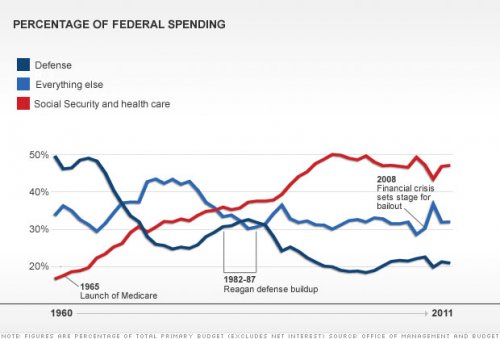- Joined
- 21 April 2009
- Messages
- 13,760
- Reaction score
- 7,702
http://www.bicc.de/fileadmin/Dateien/pdf/press/2012/Update_GMI_2012_Fact_Sheet_e_neu.pdf
In the grand scheme of thing if you only spend $600 billion ($525 billion base budget) out of a $16 trillion ecomony you're not a very 'militarized' society.
In the grand scheme of thing if you only spend $600 billion ($525 billion base budget) out of a $16 trillion ecomony you're not a very 'militarized' society.

